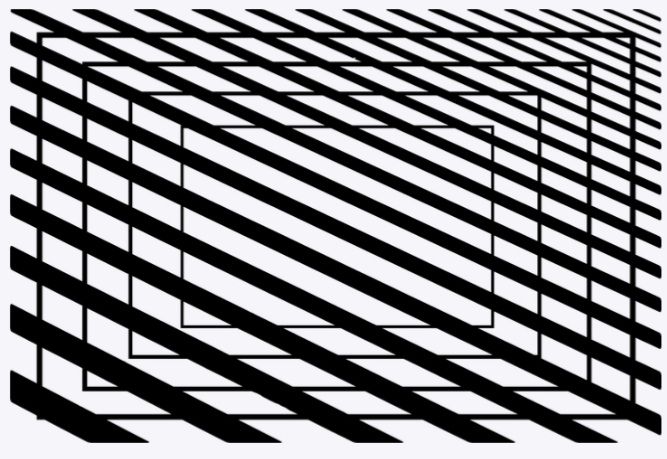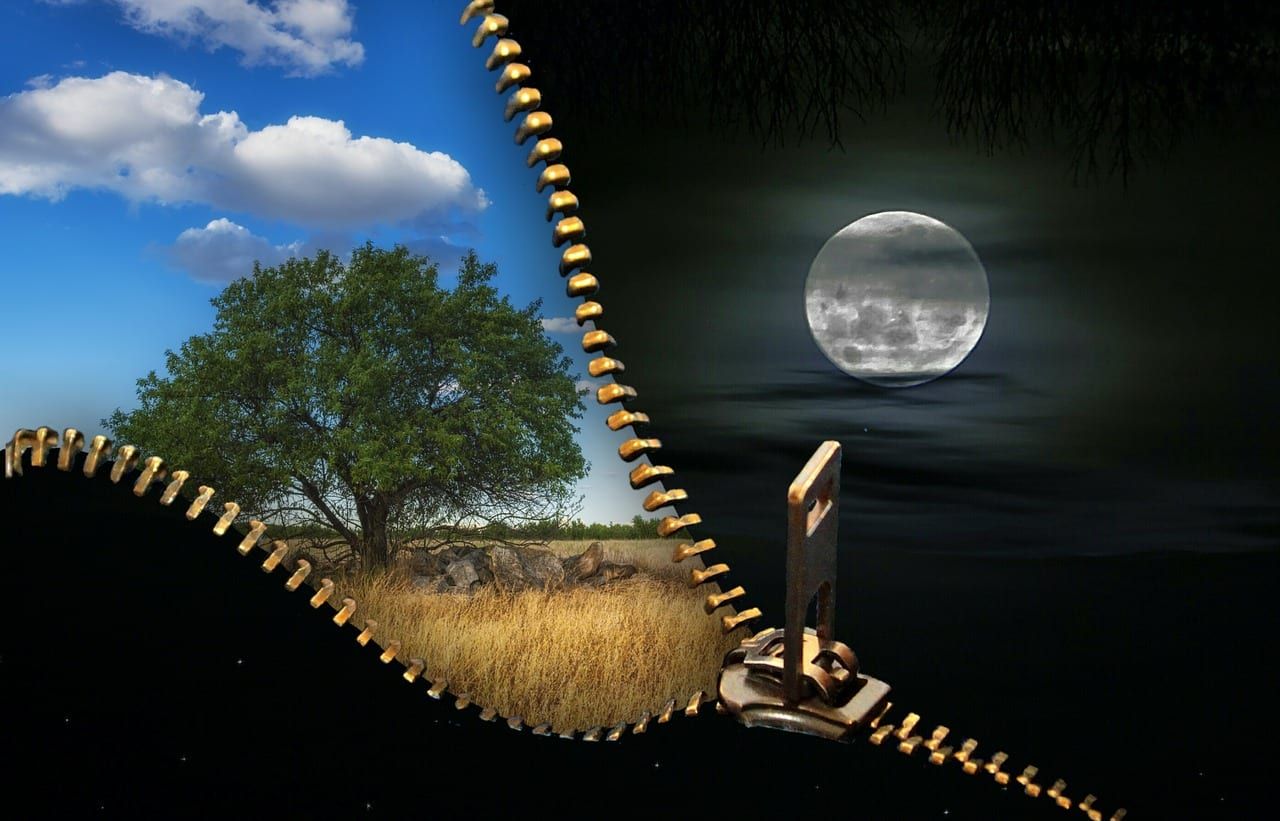In The Name of Allah, The Most Merciful, The Bestower of Mercy.
Allah [The Exalted] said:
فَٱجۡتَنِبُواْ ٱلرِّجۡسَ مِنَ ٱلۡأَوۡثَـٰنِ وَٱجۡتَنِبُواْ قَوۡلَ ٱلزُّورِ
So shun the abomination (worshipping) of idols, and shun lying speech (false statements).
[Surah Al-Hajj. Ayah 30]
Al-Allaamah Rabee Bin Haadi al-Mad’khali [may Allah preserve him] stated: “Allah forbade lying and mentioned it alongside shirk”. The Shaikh also stated, “Numerous are liars today against the callers and carriers of the Salafi Dawah. They (i.e. the liars) can disseminate cruel rumours till it reach the world using various means made available to them in this era. They divert people from Allah’s path and seek to make it crooked to further their falsehoods, twaddle, and dangerous innovations in religion that destroy sound belief, sound Islamic approaches to various subjects, and virtuous manners”. [1]
Mr Haqiqatjou stated: “As I’ve covered for over a year now, the Madkhalis are a deviant group that was created by Saudi and UAE intelligence to trick Muslims worldwide into thinking that Gulf policies, no matter how anti-Islamic, should never be criticized. According to Madkhalis, if you or I criticize these countries for secularizing or for normalizing relations with Israel, our criticism constitutes “khuruj” and makes us heretics and terrorists who should be killed. Madkhalis have been calling for my death for the past year now for this”. [End of quote]
Response: This classification of a so-called strain within Salafiyyah known as Madkhalism is a ruse concocted by the Shayaateen among Salafiyyah’s sworn foes. They are unable to present concrete evidence to confront the sound Salafi methodology and its upright scholars, therefore they resort to lies, fantasy, delusions, and slander. This term was concocted by ahlul bidah (the Qutbiyyah, Ikhwaanees, and their ilk) to discredit a great scholar of this Ummah called Rabee Bin Haadi Al-Madkhali [may Allah preserve him]. Read about this great scholar in the article compiled by Shaikh Abu Khadeejah [may Allah preserve him]: https://abukhadeejah.com/biography-of-ash-shaykh-al-allamah-rabi-ibn-hadi-al-madkhali-and-the-praise-of-the-scholars-for-him/
There are no strains in Salafiyyah, let alone one known as Madkhalism; therefore, there’s no need to address anything related to its so-called origin or emergence as a so-called deviant group, otherwise, we’ll engage in a fruitless debate in attempting to rebut this delusion of the arrogant liar Mr Haqiqatjou. Everything said by the liar about this fictitious strain within Salafiyyah is intended to misconstrue the reality of Al-Allaamah Rabee’s approach and efforts in rebutting ahlul bidah. Indeed, Al-Allaamah Rabee Bin Haadi Al-Mad’khali [may Allah protect him] is their target since he, along with other well-known Salafi Scholars – such as Al-Allaamah Muhammad Amaan Al-Jaami, Al-Allaamah Ubaid Bin Abdillah Al-Jaabiri, Al-Allaamah Saalih Al-Fawzaan, Al-Allaamah Muhammad Bin Abdil Wahhaab Al-Bannah, Al-Allaamah Muqbil Bin Haadi Al-Waad’ee – exposed the corruption and deception of the Takfeeris, Qutubies, and other political activists in Saudi and elsewhere, and Al-Allaamah Rabee, in particular, revealed the reality of Sayyid Qutb, Hasan Al-Bannah, the Egyptian Muslim Brotherhood sect, Adnaan Aroor, Abdur-Rahmaan Abdul Khaaliq, Ihyaa Turaath, and others. Additionally, other Salafi scholars, such as Imaam Al-Albaanee, as well as Salafi students of knowledge in the East and the West, revealed the truth about the Khawaarij, such as Usaamah Bin Ladin and Ayman Az Zawaahiri, political activists, and people who adhered to the Ikhwaanees’ methodology, such as Salman Al-Awdah, Safar, Nasir Umar, Muhammad Al-Areefee, Yusuf Al-Qaradawi, and their ilk.
Visit: http://www.themadkhalis.com/md/
This is the reality whether Mr Haqiqatjou acknowledges it or not. Al-Allaamah Rabee Bin Haadi Al-Mad’khali and his students in the East and the West were amongst the first to expose all contemporary deviant groups and individuals whose orientation is a path that encourages an innovative political discourse or rebellion against Muslim rulers. So, when their misguided tactics and covert attempts to infiltrate Salafiyyah were uncovered, they concocted a so-called, imaginary strain within Salafiyyah which they called Madkhalism and falsely attributed to Al-Allaamah Rabee Bin Haadi Al-Mad’kali. And to cover up their deviated organisations and figureheads, they also invented several bogus ideas; nevertheless, Al-Allaamah Rabee once more revealed their evil schemes. Read what the Shaikh stated in this link: https://salaficentre.com/2019/08/16/one-of-the-most-dangerous-group-shaikh-rabee-unveils-their-affair/
The right approach in dealing with the Muslim ruler, whether impious or pious, is not left to Mr Haqiqatjou’s vain desires; rather, the believer is commanded to return to the authentic divine texts as understood by the Prophet’s companions. Read below:
Believer’s Bahaviour Towards Muslim Rulers – [Supplicates For Them….]
Senior Salafi students transmitted this subject matter many years ago from the clarifications of the Senior Scholar before Mr. Haqiqatjou began to openly attack Salafiyyoon and labelling them as Mad’khalis. Read “Imaam Ibn Baz on the Manhaj of Correcting the Rulers”:
https://www.salafipublications.com/sps/sp.cfm?subsecID=MNJ16&articleID=MNJ160003&articlePages=1
Imaam Barbahaaree on the Manhaj of Dealing With the Rulers: By Shaikh Abu Talhah [may Allah have mercy upon him and his wife] and Shaikh Abu Iyaad [may Allah preserve him]:
https://salafipublications.com/sps/sp.cfm?subsecID=MNJ16&articleID=MNJ160002&pfriend=
So, are Imaam Al-Barbahaaree and Imaam Ibn Baaz [may Allah have mercy on them] Mad’khalis because of the approach they employ in dealing with the Muslim rulers?!
Mr. Haqiqatjou stated: “According to Madkhalis, if you or I criticize these countries for secularizing or for normalizing relations with Israel, our criticism constitutes “khuruj” and makes us heretics and terrorists who should be killed. Madkhalis have been calling for my death for the past year now for this”. [End of quote]
Response: First, using the word “secularising” without explanation or differentiation is risky since not everyone who sins can be seen to be secularising his beliefs, behaviours, or attitudes. Therefore, we are obligated to elucidate in the following link:
“I Consider Myself a Secular Muslim” – Statement of Damn fools!
Regarding the normalisation of relations with the Zionists of Palestine or any other non-Muslim group or country, this is not under our authority; instead, it is the responsibility of the rulers, and it is the duty of those who can advise the rulers if they have evidence that following such a course in a given situation will cause more harm than good. And we ask Allah to guide the rulers in all affairs, as Imaam Fudayl Ibn Iyaad [may Allah have mercy upon him] said: “If I had one supplication that was going to be answered I would make it for the ruler (imām), for the wellbeing and righteousness of the Imam [i.e. the ruler] means wellbeing for the land and its people”. [2]
Would this statement of Imaam Fudayl make him a so-called Mad’khali?!
Mr. Haqiqatjou stated: “Our criticism (i.e. against the rulers who are secularising in the view of Mr. Haqiqatjou) constitutes “khuruj” and makes us heretics and terrorists who should be killed. Madkhalis have been calling for my death for the past year now for this”. [End of quote]
Response: First, clarification and differentiation are needed for this assertion. We have previously included the link with the information on how to advise the rulers and will attach it again here so that the reader does not have to scroll up.
“Imaam Ibn Baz on the Manhaj of Correcting the Rulers”:
https://www.salafipublications.com/sps/sp.cfm?subsecID=MNJ16&articleID=MNJ160003&articlePages=1
Imaam Barbahaaree on the Manhaj of Dealing With the Rulers: By Shaikh Abu Talhah [may Allah have mercy upon him and his wife] and Shaikh Abu Iyaad [may Allah preserve him]:
https://salafipublications.com/sps/sp.cfm?subsecID=MNJ16&articleID=MNJ160002&pfriend=
Second, there is no doubt that the one who goes against the correct path in advising the rulers as mentioned above is mistaken, even if his intention is not to call to khuruj, as Imaam Muhammad Ibn Saaleh Uthaymeen [may Allah have mercy on him] said, “There is no khuruj with the sword except that it is preceded by Khuruj with the tongue.” [3]
Third, there is more danger to the affair of those who criticise the rulers intending to call to Khuruj! Al-Allaamah Saalih Al-Fawzaan [may Allah preserve him] stated: There are various types of khawaarij: those who carry weapons, those who write, those who speak like the one who said to Allah’s Messenger “Be just”, and those who believe in their hearts but do not speak or act upon it despite having the belief of the khawaarij in their heart. However, some are worse than others. [4]
Thus, are Imam Muhammad Ibn Saalih Al-Uthaymeen and Al-Allaamah Saalih al-Fawzaan Madkhalis now considered to be Mad’khalis as a result of the aforementioned clarification?
Without a doubt, the person who openly follows the path of the khawaarij in words, deeds, or beliefs is a terrorist since the khawaarij advocate for violence and is a heretic in the sense that he follows Bidah and a false creed. However, regarding the verdict that they ought to be killed, Mr. Haqiqatjou has once again refrained from providing further details; hence, we are obliged to clarify in this link: https://salaficentre.com/2011/10/24/shaikh-fawzaan-the-methodology-of-ahlus-sunnah-in-their-combat-against-the-khawaarij/
As for Mr. Haqiqatjou’s claim that “Mad’khalis [i.e. so-called Madkhalis] have been calling for my death for the past year now for this”, he must state specifically who is threatening to kill him because neither are we Mad’khalis nor have we threatened to kill or physically harm anyone, rather, we are Salafiyyoon. Therefore, it is incumbent upon Mr. Haqiqatjou to elaborate and mention names rather than wallowing in ambiguity, as Imaam Ibn Al-Qayyim [may Allah have mercy upon him] said, “It is obligated on you to give detail and make a distinction because unrestricted and general (statements) without clarification has indeed corrupted this existence [i.e. the world], and misguided the intellects and views in every era”. [5]
Indeed, we completely disassociate ourselves from the statements and actions of anyone who believes that Mr. Haqiqatjou should be physically harmed or killed, and may Allah protect our hearts, mouths, and tongues from such transgression, Aameen.
Finally, it is incumbent upon him to cease being an arrogant liar as well as abandon this fictitious Mad’khali labelling that is constantly manifesting his fraudulent behaviour as our Senior Salafi teachers [Shaikh Abu Iyaad and Shaikh Abu Khadeejah] give unambiguous knowledge-based clarifications and those duped by him become more certain that he is nothing more than a spiteful attention seeker who harbours hatred against the Salafiyyoon because they are a deterrent to his misguidance and vain desires.
Must read:
https://abukhadeejah.com/concise-adequate-response-to-the-scorn-lies-deceit-of-daniel-haqiqatjou-against-ahlus-sunnah-wal-jamaah/
https://abuiyaad.com/a/daniel-haqiqatjou-madkhali-bootlickers
To be continued…InShaaAllah
[1] https://salaficentre.com/2020/07/24/the-danger-of-lies-and-its-evil-consequences-and-different-types-of-liars-by-shaikh-rabee-bin-haadee/#:~:text=The%20Messenger%20%5Bsallal%20laahu%20alayhi,be%20cautious%20of%20the%20liars
[2] Hilyatul Awliyaa 8/91
[3] Quoted by Shaikh Abdullaah Al-Bukhaari (may Allah preserve him) in ‘Sharh Fadl Ilm As-Salaf Alaa Ilm Al Khalaf- Audio Number 1. Questions & Answers section
[4]Al-Ijaabaat Al-Muhimmah Fil-Mashaakil Al-Mulimmah: page: 10-11
[5] An Excerpt from At-Ta’leeqaat Al-Mukhtasar Alaa Al-Qaseedah an-Nooniyyah. 1/216. By Al-Allaamah Saaleh Al-Fawzaan













